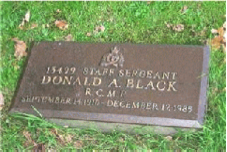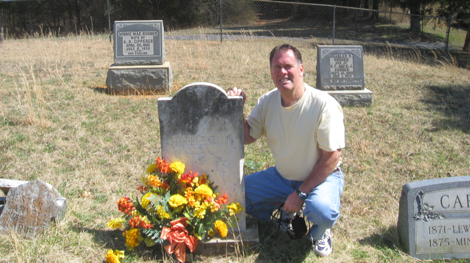FEATURED CONTRIBUTIONS FROM VETS
I have been very happy to receive messages from Vets in response to this website. This page is dedicated to the sharing of memoirs and comments.
All Vets are invited to contribute to the Vets’ Corner. A variety of contributions will be posted. Please include your name and regimental number.
From: Reg #26829 Gerald R. Grattan
While I was stationed in Churchill Det, ‘D Div., the members made deliberate annual patrols to the grave of a fallen member who was buried on the banks of the Churchill River. This is a barren piece of land and the grave is known to a few local hunters and, of course, the Force. The members were always proud and honoured that they had the responsibility to care for Surgeon Flood’s grave. We ensured the cross was presentable and the outline of the grave was well defined by placing large rocks from the area around it. There was the usual chatter as we set about to tend to the grave, but there was always a stretch of time when neither of us would say a word as we went about our business.
From: Reg # 32435 Jim Camirand
 It’s great to know that
someone is taking an interest in our heritage so those
down the road will never forget all those who have
served. My brother was in Scotland this past fall and
happened across the grave of one of our members,
S/Sgt. Donald A. Black, Reg. # 13499. His burial site
is in the Iona Abbey on the Isle of Iona off the coast
of Scotland. Along way from home. As Frank was kind
enough to let me know of your project I thought you
might be interested in the info for your web site. I
have attached a picture of the grave marker. Take care
Joe.
It’s great to know that
someone is taking an interest in our heritage so those
down the road will never forget all those who have
served. My brother was in Scotland this past fall and
happened across the grave of one of our members,
S/Sgt. Donald A. Black, Reg. # 13499. His burial site
is in the Iona Abbey on the Isle of Iona off the coast
of Scotland. Along way from home. As Frank was kind
enough to let me know of your project I thought you
might be interested in the info for your web site. I
have attached a picture of the grave marker. Take care
Joe. 
From: Reg #29147 Wayne Mossman
In Dundas Harbour, on the southeast coast of Devon Island, the RCMP maintained a small detachment in 1924-33 and 1945-51 - an expression of Canadian Arctic sovereignty from an earlier time. Two tumbledown houses, a stone path and an outhouse are all that is left, as well as the remains of two constables whose postings to this remote place ended in tragedy. Buried at Dundas Harbour are: Cst. William Stephens and Cst. Victor Maisonneuve. There are 25 such lonely RCMP graves throughout Nunavut, tended by the nearest detachment. At Dundas Harbour, a 2002 visit from Grise-Fjord based members noted that the Stephens and Maisonneuve grave sites needed some care. ‘We’ll be bringing in a new white fence,” said Connelly. “We’ll be repairing and beautifying the graves and holding a modest ceremony.”
From: Reg #23685 Joseph J. Healy
Research into the past lives of deceased members of the Force can create very interesting stories. The story behind Regimental # 0.6 Superintendet Jacob Carvell struck me as being quite unique and intriguing. Recently, while travelling in the USA, I had the opportunity to find and visit Superintendent Carvell's gravesite. It is located in a small cemetery in Page County, Rileyville, Virginia. Although very difficult to read, his grave marker states: "In memory of my beloved husband, Jacob Carvell. Died June 11, 1902, aged 67 yrs, 10 mos, and 17 days. Confederate Soldier from 1861 to 1865".Supt. Carvell's role in the American Civil War sparked my curiosity. Further investigation through the internet plus a conversation with some local town folks led to my learning that Jacob Carvell had served in the Confederate Army and had survived all four years of this intense conflict. The Page County Roster of Company K, 10th Virginia Infantry shows the name of Jacob Carvell as he enlisted in the Confederacy's Army on June 2, 1861. After the defeat of the South, Carvell relocated to Canada rather than remain within the Union. He joined the North West Mounted Police. with his Commission as Reg. #0.6
 Jacob Carvell was born on July 25th,
1835 in the small village of Rileyville, Page County in the
shadows of the Appalachians in the Shenandoah Valley of the
state of Virginia, USA. In their book entitled ‘The Great Adventure:
How The Mounties Conquered The West, David Cruise and Alison
Griffiths report that “After the awful winter of 1874-75 at Swan River,
the put-upon Inspector of E Division went on leave in the summer of 1875.”
(p. 367) The authors go on to note that “Carvell promptly deserted when
he was safely over the American border” (p. 367), however, it has
also been reported in historical files that he sent in his resignation
papers from Bolder, Colorado. Carvell returned to Virginia and died on
June 11th, 1902.
Jacob Carvell was born on July 25th,
1835 in the small village of Rileyville, Page County in the
shadows of the Appalachians in the Shenandoah Valley of the
state of Virginia, USA. In their book entitled ‘The Great Adventure:
How The Mounties Conquered The West, David Cruise and Alison
Griffiths report that “After the awful winter of 1874-75 at Swan River,
the put-upon Inspector of E Division went on leave in the summer of 1875.”
(p. 367) The authors go on to note that “Carvell promptly deserted when
he was safely over the American border” (p. 367), however, it has
also been reported in historical files that he sent in his resignation
papers from Bolder, Colorado. Carvell returned to Virginia and died on
June 11th, 1902.
Source: Cruise, D., & Griffiths, A. (1996). 'The Great Adventure: How The Mounties Conquered The West'. Toronto: Penguin Books Canada Ltd.